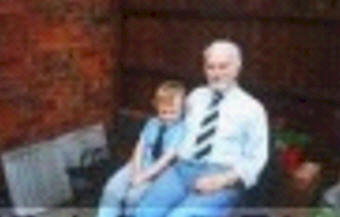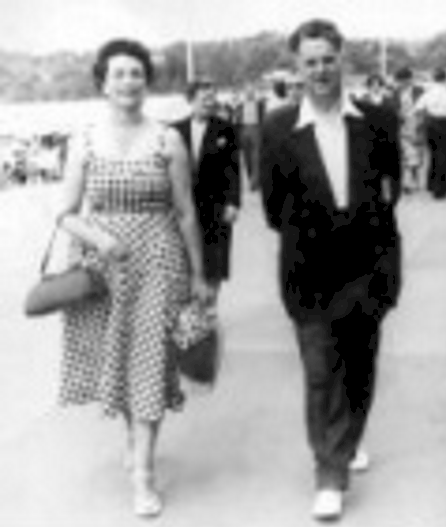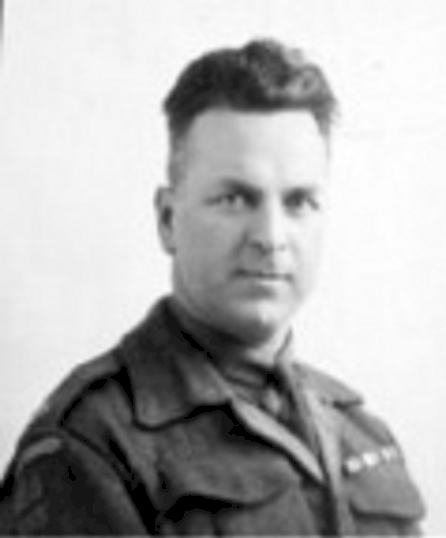
|
|
| BOMBING RAID LEFT BERNARD BRUISED - THANKS TO HIS MUM |
| DET - 06 September 2006
Home Guard Captain Ernest Golding was determined that no Hitler
bomber would drive him under cover - which had unfortunate consequences
for his young son Ernest, as correspondent John Garratt amusingly
recounts. One of the great escapes of the Second World War was the survival of the borough of Derby. Whatever the reason for its deliverance - decoy or divine intervention - the town was spared the fate of other blitzed cities. As a great industrial heartland, a railway junction, a centre of light and heavy engineering and the home of Rolls-Royce - the greatest prize of all for any bomber fleet - the town should have been a prime target. Everyone knew it, from the street sweeper to the mayor and corporation. In the month before war was declared, Central School was evacuated from Abbey Street, near the town centre, to Darley Park on the outskirts.
We expected the town to be razed, but amazingly we escaped almost unscathed. Those under the flight path to Coventry had the more hair-raising experiences. Some houses in the Normanton area were destroyed and families killed. The remainder stoically sat it out - but there was always the danger of
Captain Golding had served as an NCO with the Royal Irish Regiment in
the First World War. He survived four years in the trenches and came
unscathed through the horrors of Passchendale, only to be taken prisoner
in April 1918. Perhaps not surprisingly, he had plenty of Churchill's
bulldog spirit and an enduring belief in his own indestructibility. And,
It was his habit, when the sirens sounded, to patrol the garden, assess
the strength and direction of the incoming enemy bomber fleet, check the
night sky for searchlights and gunfire and then retire to bed. He was
cheerfully optimistic that, wherever the bombs fell, they would not fall
on him. Pictures: (top to bottom)
|

 Hitler finally launched his blitz in October, 1940, and crouched under
the stairs or in Anderson shelters, Derby waited for the worst. London,
Plymouth and Coventry were plastered. Night after night, the sirens
wailed and the bombers droned overhead on their mission of destruction.
Hitler finally launched his blitz in October, 1940, and crouched under
the stairs or in Anderson shelters, Derby waited for the worst. London,
Plymouth and Coventry were plastered. Night after night, the sirens
wailed and the bombers droned overhead on their mission of destruction. "friendly fire" as Old Centaur Bernard Golding discovered to his cost.
As an eight-year-old, Bernard lived in Offerton Avenue, Normanton, close
to Normanton Rec. His father was Captain Ernest Golding, second-in-
command of the 13th Battalion (Sherwood Foresters) Home Guard.
"friendly fire" as Old Centaur Bernard Golding discovered to his cost.
As an eight-year-old, Bernard lived in Offerton Avenue, Normanton, close
to Normanton Rec. His father was Captain Ernest Golding, second-in-
command of the 13th Battalion (Sherwood Foresters) Home Guard. anyway, "no blinkin' Jerry" was going to drive him under cover.
anyway, "no blinkin' Jerry" was going to drive him under cover.